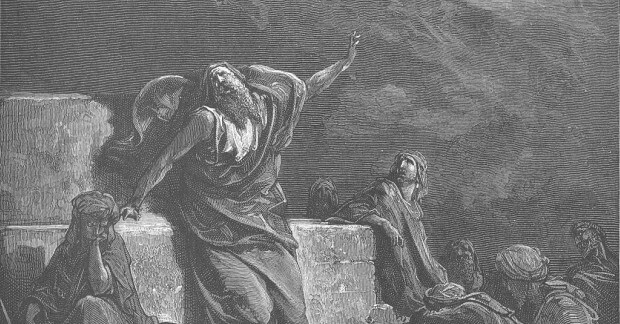If we look beyond the details of Jeremiah’s anguish and apparently fruitless ministry, we can spot a dual emphasis in the book that bears his name: judgment and repentance. But emphasis is not the only double issue. Two full versions of the book have survived from antiquity—and they diverge in many ways.
The “Jeremiah Problem”
The book of Jeremiah has come to us in two versions—a Hebrew version, the Masoretic Text, and a Greek version, the Septuagint (the ancient Greek translation of the Old Testament). Our modern English Bibles follow the arrangement and content of the Masoretic Text (MT). The Septuagint version (or lxx) was translated from a Hebrew text of the book that differed in many ways from the MT. Because of this, the Greek version is roughly one-eighth shorter than the MT, and after Jeremiah 25:13, the order of the chapters differs dramatically.
Despite attempts to solve the “Jeremiah problem,” the textual history of both versions remains unresolved. We still don’t know which Hebrew text is older—the one we have today (MT) or the one used by the scribes who created the Septuagint.
The fragmentary scrolls of the book found among the Dead Sea Scrolls usually follow the order and content of MT, but some of the material matches the Hebrew manuscript that was translated into the Septuagint. Consequently, the Dead Sea Scrolls cannot offer a definitive answer regarding which version of the book more closely aligns with the time of the prophet.
We also find mixed results when examining the history of these versions. The Jewish community favored the MT version, but this is only apparent from around AD 100 onward, after the time of Jesus and the apostles. New Testament writers favored the Septuagint when quoting the Old Testament. Studies reveal that when the Old Testament is quoted in the New Testament, the wording found in the Greek New Testament, the MT, and the Septuagint differs in some way 80 percent of the time.
Word-for-word quotations of MT are not common, amounting to less than five percent. Even when factoring in nearly identical quotations of MT, it is clear that the New Testament writers only appear to have used MT 20 percent of the time. The New Testament writers most often quoted from the Septuagint, but this doesn’t mean they endorsed it, since they used both versions. They were writing in Greek, and so using a Greek translation would have been natural.
A Practical Response
So what can we conclude about the book of Jeremiah? Well, we cannot conclude that the Septuagint is to be preferred over MT, as though it were more sacred or “original.” If that were the case, it would be shocking to see the New Testament writers quote the MT. The reverse is true as well. Neither version deserves a higher status.
Perhaps the real lesson is that the New Testament writers, working through divine inspiration, weren’t concerned about the issue. There isn’t a single instance that indicates concern over which manuscript was being used or quoted.
This lack of concern is reflected in the ministry of Paul, who preached in synagogues all over the Mediterranean. Each synagogue had its own biblical text—its own scrolls, sometimes Septuagint and sometimes MT—and Paul used whatever was at his disposal. The same is true in his own letters. He trusted God’s provision that he was reading and preaching the very word of God. So should we.
***

This article is excerpted from Dr. Heiser’s book I Dare You Not to Bore Me with the Bible.
Discover more fascinating facets of the Bible with Dr. Heiser
Keep exploring the strange, perplexing, and mysterious aspects of the Bible with these excerpts from Dr. Michael S. Heiser’s The Unseen Realm: Recovering the Supernatural Worldview of the Bible. Or dive deeper into the supernatural world of the Bible and pick up a copy of The Unseen Realm today.






